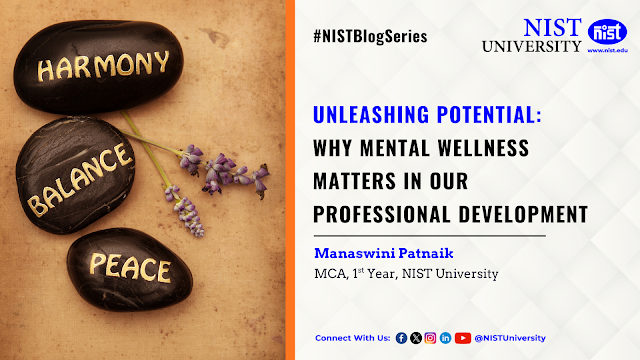WHY LEADERS FAIL! WORK ON 04 LEADERSHIP QUOTIENTS
Writer and philosopher Ralph Waldo Emerson once said, “Our chief want is someone who will inspire us to be what we know we could be.” The growth and prosperity of Nations can happen only when they have visionary leaders, who can take people along with them in achieving the national goal. The same applies to an organisation. The success journey of an organization is always driven by the qualities of leadership it has. In the absence of right leadership, organizations crumble, nations fail, and economies struggle leading to organizational chaos and disintegration. History is witness to the rise and fall of many empires due to poor and ineffective leadership.
There are different ways how a leader should lead people. The effective leader is the one who understands the team dynamics, encourages, empowers and inspires the team members to align individual and organizational goal. These styles of leadership are four types:
1. Transactional
A leader who uses the transactional style influences behavior and performance by giving out rewards and punishments. This leadership development style focuses on other people’s performance through more surface-level incentives.
2.Transformational
The transformational style goes beyond simple rewards and instead reaches people internally. It still encourages better performance, but it does so by motivating people to look past their moment-to-moment self-interest.
3.Entrepreneurial
The entrepreneurial leadership style looks at the big picture and prevents people from getting bogged down in pessimism. Leaders treat problems as opportunities, not obstacles. The entrepreneurial style also focuses on collaboration and stressing shared values.
4. Servant leadership
The Servant Leadership style enervates influence and creates followers by serving others. This style looks to fulfill individual, organizational, and communal needs. Those practicing servant leadership aren’t motivated by ideas of wealth or power. They lead in this manner because they have a desire to help other people.
Qualities of an Effective Leader:
An effective leader need to possess and improve on certain fundamental competencies. Leadership competencies refer to a specific set of knowledge, skills (technical and soft), and attributes that make a person an effective leader. They are:
1. Communication skills: Successful leaders are able to express their ideas and communicate effectively with their team. This means they can delegate tasks, give feedback, and listen to others’ ideas.
2. Emotional intelligence: Understanding and managing emotions are essential aspects of leadership. These leaders display empathy and establish connections with their team members. They’re also able to manage their own emotions to avoid negatively affecting the team.
3. Decision-making: Effective leaders possess the ability to make informed decisions in a timely manner. They consider different perspectives and adopt a clear, practical approach to decision-making.
4. Accountability: Owning up to mistakes and taking responsibility for actions is an integral trait for leaders. A leader who demonstrates accountability earns trust and respect from their team.
5. Integrity: Inherent honesty, ethical conduct, and fairness define true leaders. Exhibiting integrity promotes trust and fosters a strong team culture.
Why Leaders fail:
Leaders fail- it is an undeniable fact. Good leaders fail. It’s an undeniable fact of business and life, yet many people find this to be a difficult pill to swallow. Why do good leaders fail?
Gartner research has found that managers today are accountable for 51% more responsibilities than they can effectively manage — and they’re starting to buckle under the pressure: 54% are suffering from work-induced stress and fatigue, and 44% are struggling to provide personalized support to their direct reports. There are verities of factors that contribute to leadership failure; however, the significant among them are:
My idea is the Best: The Shared Value Quotient
Leaders who get obsessed with their ideas fail in connecting the idea with the need of that idea. They become myopic to understand that however innovative and creative the idea may be, it must be relevant to the business ecosystem. They in the process ignore feedback from people and thus fail in creating the sense of ownership among the team members. The leaders should understand that a great idea is great as long it gets great feedback from people who are going to be affected by it.
I love YES People: The Rejection acceptability quotient
When leaders get themselves surrounded with ‘yes’ people, they start over believing in themselves. The result is over confidence in their own ideas which lead to discouraging questioning from other team members and create distance between ideation and execution. In the process leaders loose to get the realistic perspectives on their ideas.
I want only results: The Action-outcome Quotient
An intense focus on efficiency and getting things done (consistent with the pacesetting leadership style in Daniel Goleman’s classic Leadership that Gets Results) makes these leaders less effective overall. The result is often a negative impact on organizational climate and burnout of team members.
I am Indispensable – The entrepreneurial hubris quotient
Even the greatest leaders have limitations. Leader entrepreneurs who see themselves as indispensable and cannot imagine life without their businesses suffer from “entrepreneurial hubris.” As a leader one must acknowledge the time when there might be people who would be better than you at running your company or organization.
Conclusion:
Leaders must do self-analysis first to become an effective leader. Understanding others begins with understanding oneself first. This will help to understand and manage the team with empathy, compassion and strategy. We have great examples in Bhagwan Sri Ram and Sri Krishna that teaches us the dynamic intricacies of Leadership, that can help leaders to strive to embody the qualities to become a successful leader
Author: Dr. Sabyasachi Rath, Professor, Department of Management Studies
Stay tuned for more such updates on our official social media: https://linktr.ee/NISTUniversity




Comments
Post a Comment